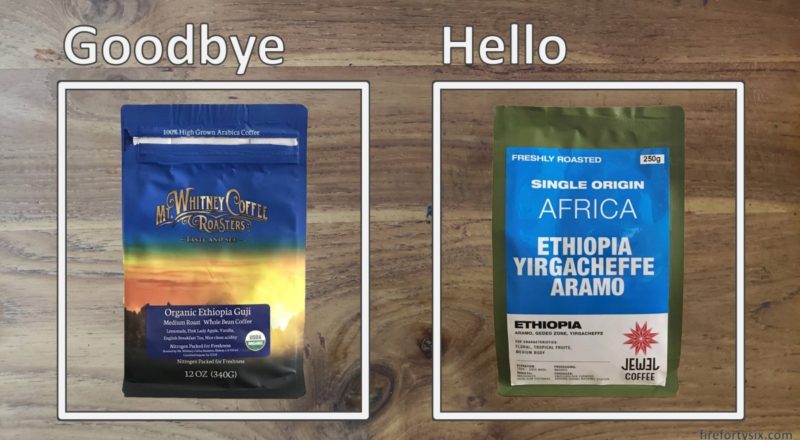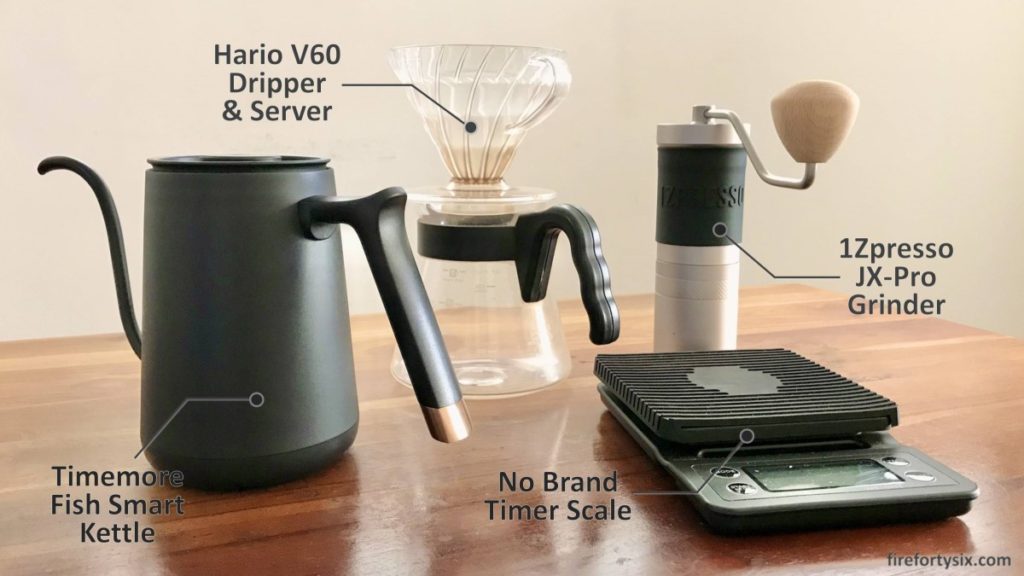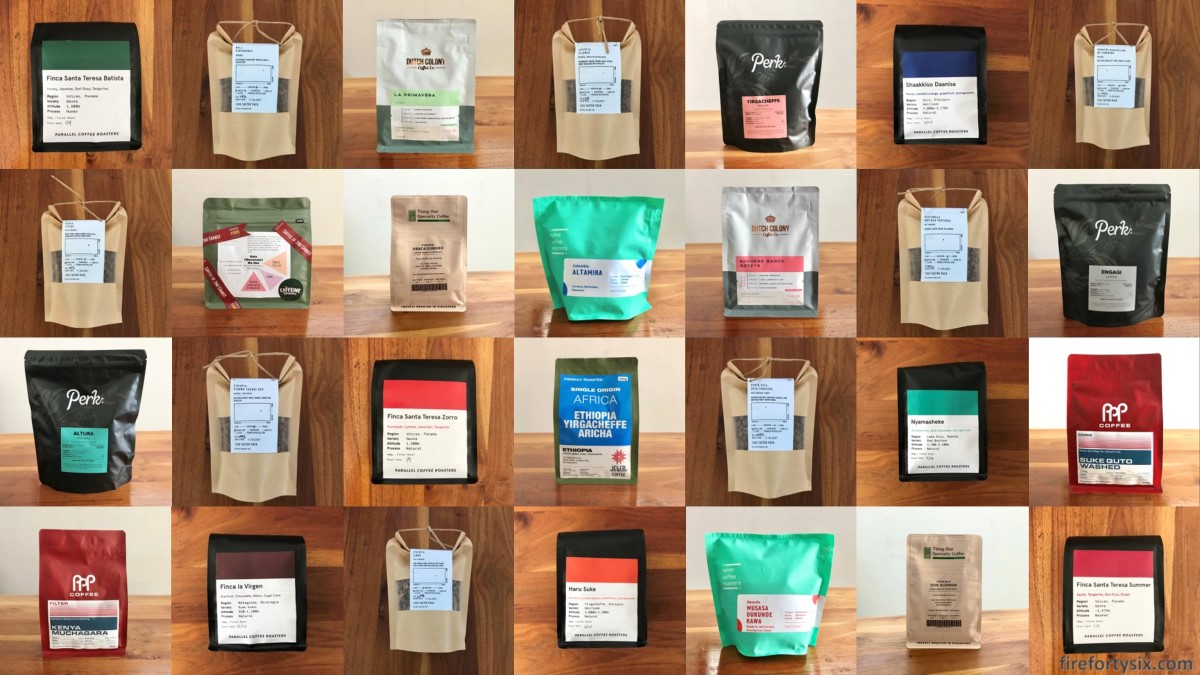When I first started making pour over coffee many years ago, I started with somewhat freshly-roasted beans from Mt Whitney Coffee Roasters. They were available from the iHerb online store, and I piggy-backed off The Wife’s regular purchases, buying several 12 oz (340gm) bags each time.
There were many different single-origin beans to choose from, including those from Costa Rica, Guatemala, Peru, Honduras and Ethiopia. It was fun trying different coffees, and we could sort of tell the differences between them.
But given the rudimentary setup I had then, the coffee I brewed wasn’t consistent. Since I didn’t have a timer scale, I had to eyeball it and couldn’t tell how much coffee was actually being ground by my entry-level electric grinder each time.
While I did use a pour over jug, the workflow was messy as I had to boil water using our big electric kettle and transfer it to the small jug in batches. My pouring technique then was hit-and-miss, basically pulse pouring without tracking pouring times or volumes.
Despite all the shortcomings, the coffee was quite good. On most days at least.
I decided to get serious with our daily morning brew and started doing research on how to improve it. And the first thing I bought was a generic no-brand timer scale from a generic online store. Because you can’t manage what you don’t measure, and I sure wasn’t measuring anything.
One thing led to another, and I ended up with a cost-effective but professional-level pour over coffee setup.
After I had assembled the right equipment, I was able to dive deeper into different pouring techniques and recipes. Our morning coffee tasted significantly better, and more importantly, it got more consistent over time.
Throughout this journey, we stuck with our tried-and-tested beans from Mt Whitney. They became what I call our baseline coffee beans, something we’re familiar with and useful for experimentation.
But as my equipment and technique improved, the beans started becoming the limiting factor to achieving better tasting cups. Coffee beans from Mt Whitney are roasted in batches and nitrogen-packed in re-sealable bags that don’t indicate a roast date. Instead they have an expiry date specified, together with a specific lot number.
The first few digits of the lot number appear to be in yy-mm-dd format, and happen to be one year before expiry. So, if you’re buying Mt Whitney beans too, it’s probably safe to assume that it was roasted one year before the expiry date.
If we’re lucky, we can find beans that were roasted just a few months before. But more often than not, those available online tend to be more than six months old. It’s not terrible given that they’re medium-roasted whole beans packed in nitrogen, but you’re not going to get that satisfying bloom when you brew them.
So, we started diversifying our sources and began exploring beans from different local roasters. One benefit of that exploration was finding out the specific type of coffee that we like i.e. naturally-processed heirloom beans from Ethiopia.
After a regular diet of freshly-roasted beans, it was difficult to go back to our old baseline Mt Whitney beans.
We recently bought a couple of bags and have been cycling them between those from local roasters, and the difference is quite clear. While they’re still quite nice, the taste is a bit flatter and the flavours are more muted.
So, looks like it’s time to say goodbye, old friend. Thank you for your service, and for all the happy caffeine memories.
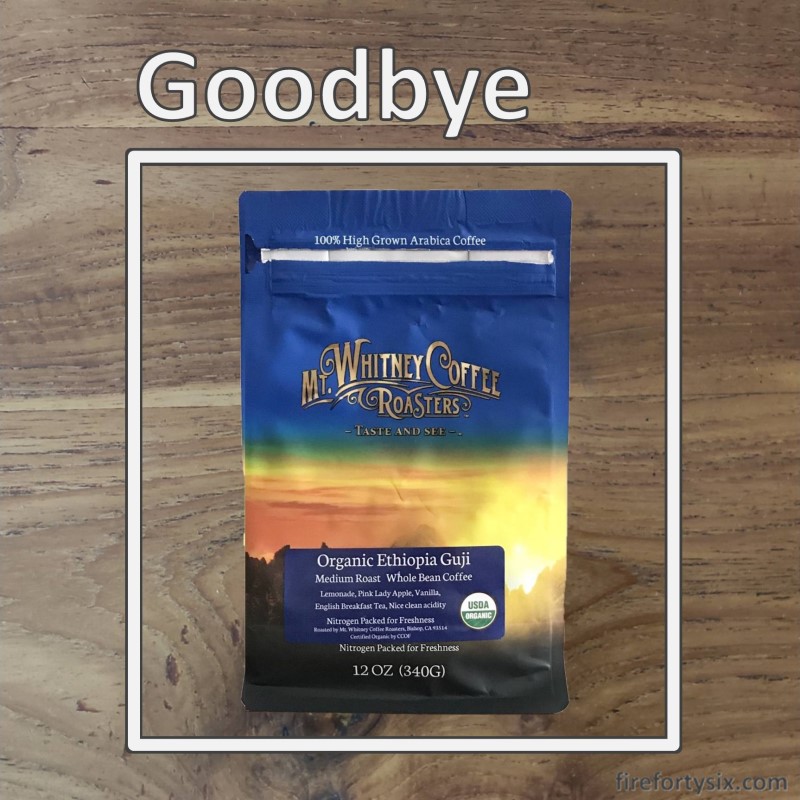
It’s still useful to have a regular supply of a familiar baseline coffee though, and here are some criteria I’ve considered when choosing the replacement:
- Good tasting: Something we’ve tried before and like, preferably Ethiopian
- Regular offering: Available all year and not a limited seasonal offering
- Freshly roasted: Within a month is fine, since I rest my coffee for at least two weeks anyway
- Reasonably priced: Preferably not much higher than Mt Whitney’s S$12.50 per 250gm (incl. shipping)
- Flexible subscription: Not essential, but good-to-have
After considering different options, I’ve decided to go with the Ethiopia Yirgacheffe Aramo from Jewel Coffee.
It checks all the boxes, and the subscription price of S$14.40 per 250gm is quite compelling. This price includes free shipping, courtesy of the FREECOFFEESHIP discount code that I managed to apply when carting out.
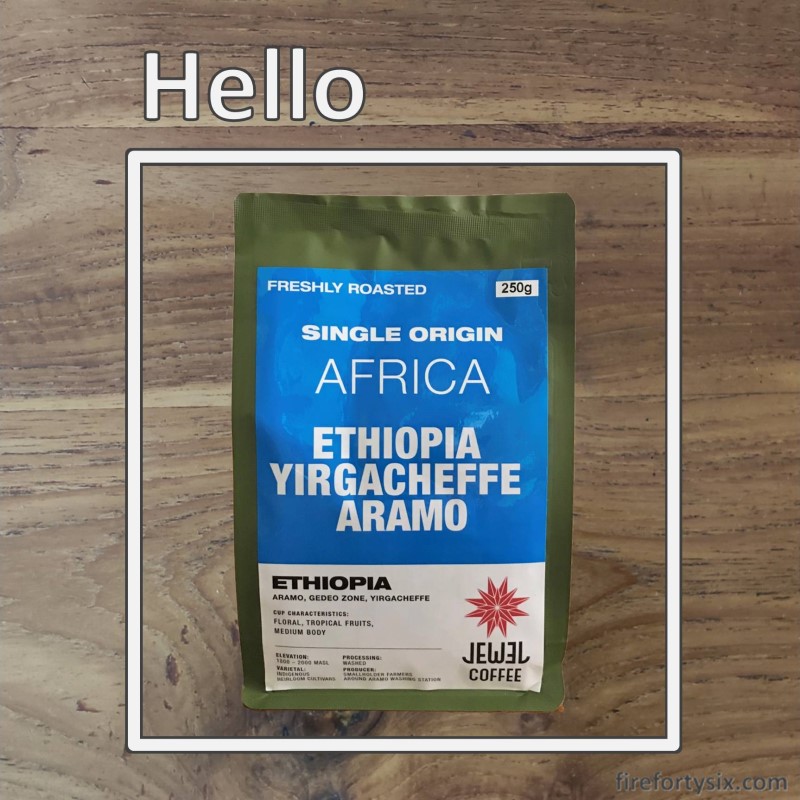
The subscription service is quite flexible, with options to change beans and skip upcoming deliveries via their online portal.
We’ve tried Jewel’s El Salvador Picacho and quite like it, and it’s nice to be able to switch things up occasionally. The skip delivery feature is also useful when my coffee inventory starts piling up and I need time to run it down.
Jewel used to print roast dates on their packages but they seem to have moved to an expiry date approach. But unlike Mt Whitney, their expiry dates appear to be six months after roast, so you can guess their roast date by working backwards.
I’m looking forward to receiving our regular monthly delivery of the Ethiopia Yirgacheffe Aramo, and can’t wait to experiment with it!
